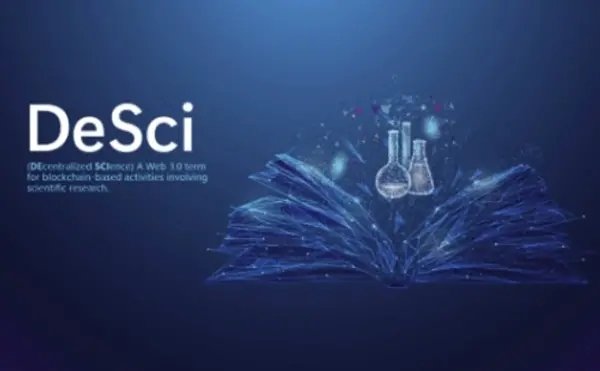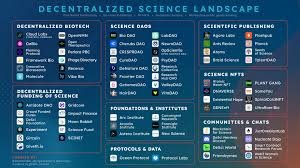
Decentralized prediction markets, powered by blockchain technology, are redefining how research is funded and how data is accessed, offering unparalleled transparency, efficiency, and inclusivity. Platforms like pump.science and Stadium Science are at the forefront of this movement, gamifying scientific research to engage broader audiences and accelerate discovery.
In 2024, decentralized prediction markets experienced significant growth, recording $1.4 billion in market activity. According to Metatech Insights, this figure is expected to surge to $95.5 billion by 2035, driven by the increasing adoption of blockchain and cryptocurrency-based systems.
These markets rely on smart contracts and oracles to facilitate trustless transactions and integrate real-world data, addressing limitations of traditional, centralized prediction platforms.
Decentralized Prediction Markets in Scientific Research
Although decentralized prediction markets are widely recognized for betting on sporting events and elections, their potential in scientific research is rapidly gaining traction. These platforms are now being used to predict the outcomes of experiments, foster collaboration, and generate funding for research projects.
Pump.science: Gamifying Research and Longevity Studies
Pump.science, a decentralized science (DeSci) platform founded by Benji Leibowitz, is leveraging prediction markets to transform the future of longevity research. By combining crypto-funded research with open-source data, the platform empowers scientists to fund their own experiments and share results publicly.
“Pump.science allows scientists to fund their projects using tokens, while making the data accessible to the public,” Leibowitz explained. “Users can also participate in prediction markets on research outcomes, gamifying the process.”
In a recent partnership with Hedgehog Markets, a Solana-based prediction platform, pump.science introduced markets that allow users to bet on the outcomes of longevity experiments involving mice. One prominent example is an experiment called RODeo, which tests the endurance and motor function of mice using a rotarod device.
Each week, mice are administered compounds with potential life-extending properties and undergo endurance testing. Participants can make predictions on which mouse will perform best by analyzing data, such as how quickly mice move around their cages or past experimental results.
“Our goal is for anyone to feel like a scientist by predicting experimental outcomes,” Leibowitz said. “If research becomes entertaining and interactive, it can attract funding and foster public engagement. Citizen scientists can use real-time data to make informed predictions.”
The platform’s unique structure incentivizes scientists by allocating a percentage of incorrect predictions to research creators, further enabling the funding of future projects. Transactions are conducted in USD Coin (USDC) and run on the Polygon blockchain, which ensures scalability and low transaction fees.

Stadium Science: Democratizing Research Participation
Another DeSci platform, Stadium Science, is similarly democratizing research by allowing users to directly participate in scientific experiments through prediction markets.
“Anyone can become a scientist,” said Michael Fischer, founder of Stadium Science. “Our platform creates prediction markets around a wide variety of scientific topics.”
For instance, Stadium Science hosts challenges such as:
- Competing to see which users are the best sleepers.
- Evaluating how intermittent fasting impacts resting heart rates.
- Testing how vitamin C affects sleep quality.
One popular challenge encourages participants to follow intermittent fasting protocols and track changes in their cardiovascular health by measuring their resting heart rate. Participants can compare their results with others, fostering a sense of community and mutual learning.
“By competing, users discover what works best for their health while contributing to research data,” Fischer noted.
The data generated from these challenges is streamed in real time to the platform, ensuring transparency and reducing the risk of data manipulation, a common issue in traditional research.
Advancing Research Through Broader Collaboration
Decentralized prediction markets offer significant advantages in advancing scientific research. By enabling interdisciplinary collaboration and incorporating a broader range of participants, these platforms can lead to more robust and diverse datasets.
“Science thrives on collaboration,” Fischer explained. “Bringing in contributors from fringe knowledge areas often leads to breakthroughs. With more people involved, the pace of discovery accelerates.”
This sentiment is echoed by Hedgehog Markets CEO Kyle DiPeppe, who noted that predictive platforms like pump.science allow users to identify the most effective drugs and treatments, resulting in more accurate and actionable datasets.
Moreover, decentralized platforms ensure that data generated belongs to participants, fostering trust and reducing data fabrication often associated with centralized research institutions.

Challenges Facing Decentralized Prediction Markets
Despite their promise, decentralized prediction markets face several challenges that could hinder widespread adoption.
Data Accuracy and Utility: Proving the reliability of data collected from prediction markets remains a major obstacle. Without rigorous validation, these platforms may struggle to gain trust from the broader scientific community.
Technical Limitations: Blockchain’s limited on-chain storage capacity and the high costs associated with storing large datasets make it difficult to scale for data-heavy experiments.
Legal and Compliance Issues: Privacy concerns, such as the “right to be forgotten”, conflict with blockchain’s immutable design, presenting a regulatory hurdle.
To address these challenges, Fischer suggested starting with simpler, smaller-scale experiments, allowing users to familiarize themselves with the benefits and limitations of DeSci platforms. “As trust grows, more complex trials will emerge, and DeSci could become the standard for scientific research.”
A Future of Decentralized Science
Decentralized prediction markets represent a groundbreaking shift in how research is conducted, funded, and accessed. By gamifying science, platforms like pump.science and Stadium Science are making research more engaging and inclusive, enabling anyone to contribute to scientific progress.
As blockchain technology continues to evolve, these platforms have the potential to overcome current limitations and reshape the future of science. With interdisciplinary collaboration, transparency, and decentralized ownership at their core, decentralized prediction markets are poised to unlock a new era of discovery.
